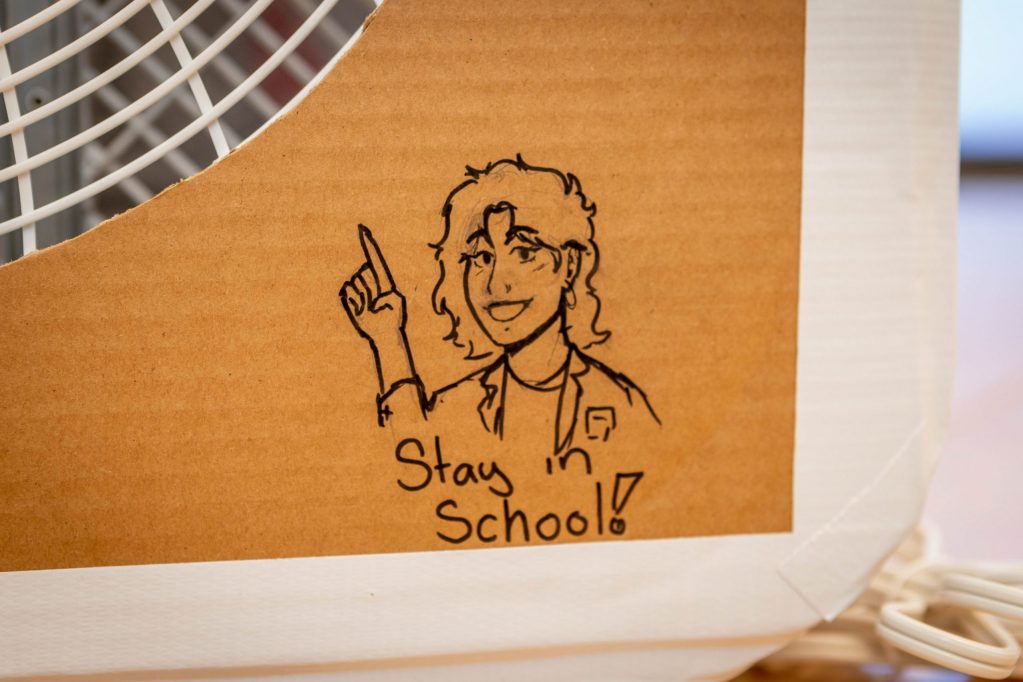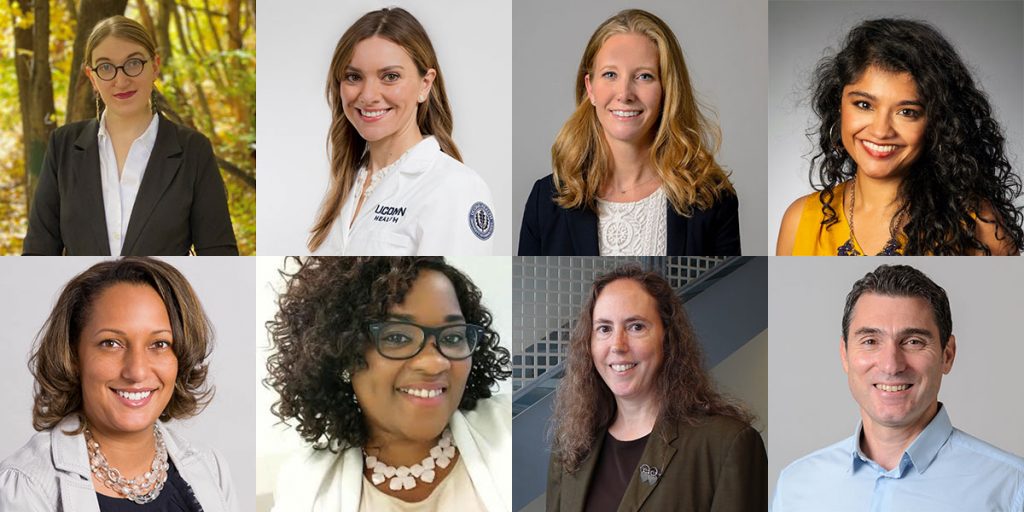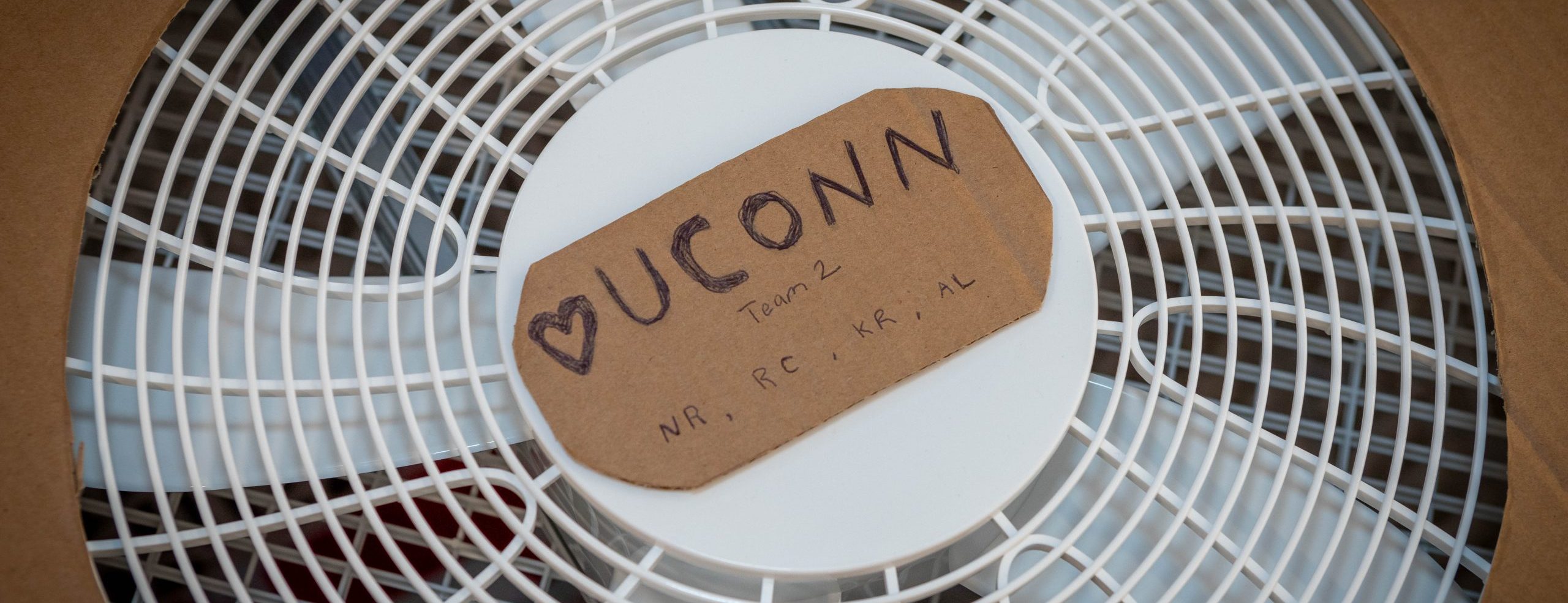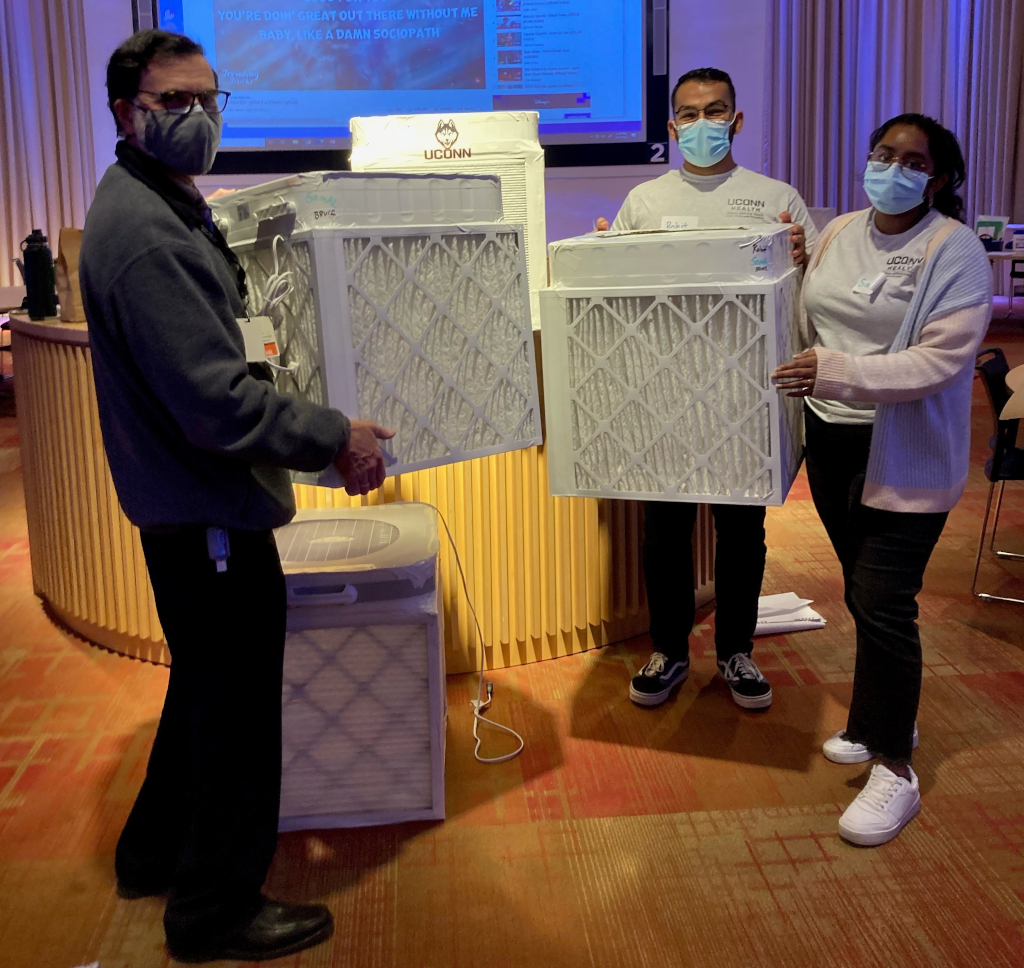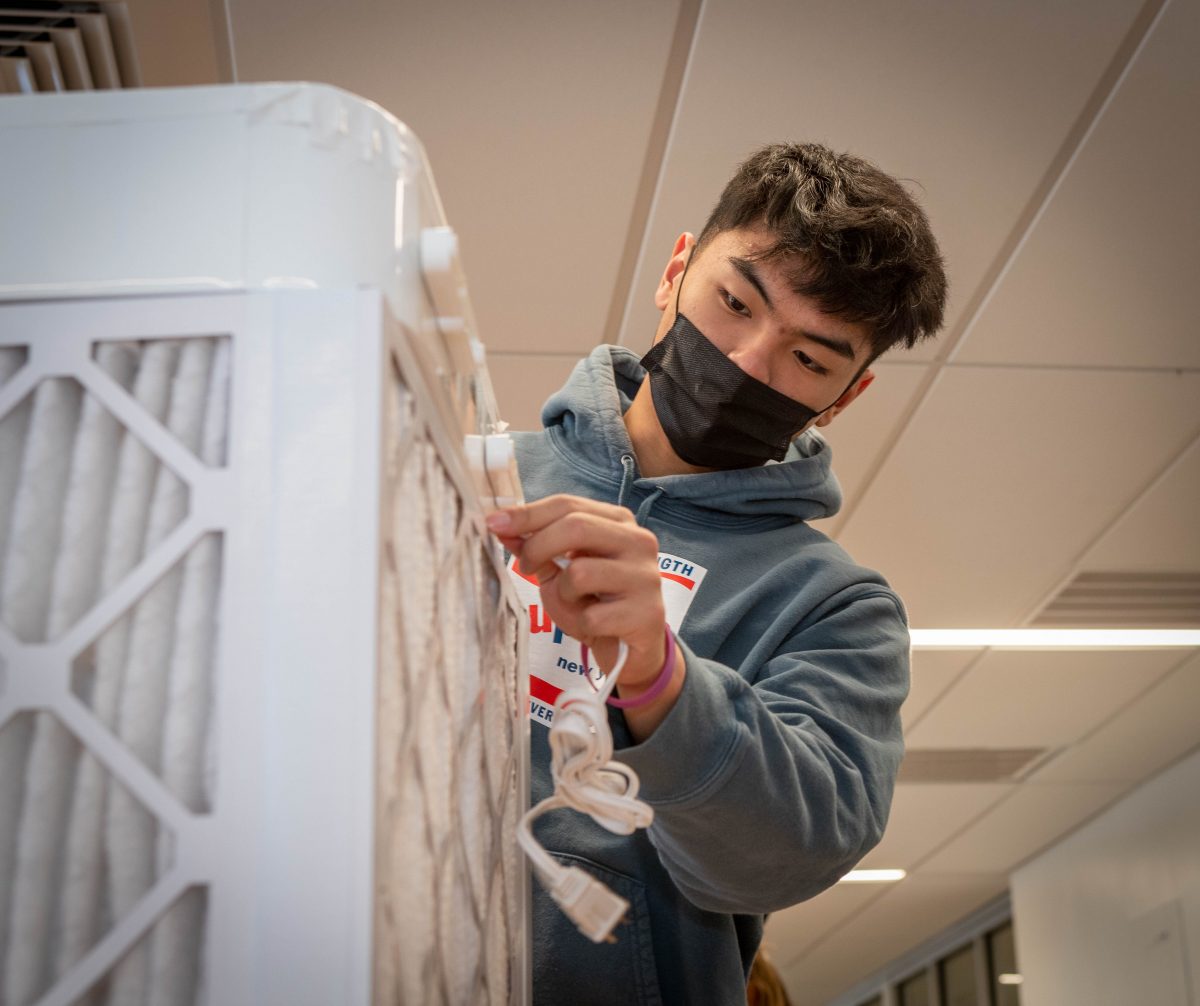COVID-19 transmits more easily in overcrowded and poorly ventilated places. To address this, UConn Health has united the UConn community to kick off an Indoor Air Quality Initiative, building inexpensive do-it-yourself air purifiers as part of a pilot project to improve community health in local elementary schools, homeless shelters, and beyond.
The new initiative, organized by UConn Health and its Comprehensive Multiple Sclerosis Center, with the UConn School of Nursing, School of Engineering, School of Medicine, the Department of Public Health Sciences, and Connecticut Area Health Education Center Network, believes that a multi-pronged approach to mitigate the risk of COVID-19 can involve the community—and that accessible, inexpensive DIY portable indoor air cleaners are one effective way to do it.
Among other strategies, the initiative is building and distributing the “Corsi-Rosenthal Box” to help stop the spread of COVID-19 and other viruses such as influenza. The boxes remove 90% of virus-carrying aerosols from the air, and are also effective against dust and allergens. With just about 30 minutes of an assembler’s time and $60 worth of supplies including a box fan, high-quality air filters, cardboard and duct tape, these devices drastically reduce COVID-carrying aerosols, providing comparable filtration capabilities to expensive professionally manufactured portable HEPA filters.
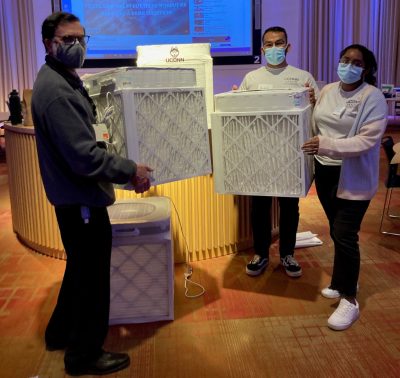
“Cleaner air will protect educators, students, and families. This DIY portable air cleaner is a low-cost, evidence-based intervention that immediately improves indoor air quality,” says UConn Health MS Center Nurse Practitioner Marina A. Creed, who spearheaded the initiative with the help of friend and colleague Sarah Laskowski of The Jackson Laboratory. Creed is concerned about her patients who are educators, paraprofessionals and parents, and both she and Laskowski have children in public schools. “My hope is that we can help make schools one of the safest places in the community, and by extension, better protect my patients, many of whom are immunocompromised.”
UConn’s School of Nursing and the School of Engineering are currently testing Corsi-Rosenthal Boxes in real world settings, looking at the effectiveness at removing particulate matter from the air in a classroom in Storrs Hall.
After contacting several school districts for the first 100-unit pilot program, West Hartford Public Schools volunteered to deploy these units to their cafeterias, where students eat lunch unmasked. The next 100-units in the pilot program will be built by 500 undergraduate engineering students as part of their ENG1166 class and will be deployed to Coventry Public Schools, where they will be utilized in cafeterias, classrooms, and other public spaces throughout the district. Additional box-a-thons are being planned for early 2022. The boxes, which use about the same amount of electricity as a single lightbulb, could be an affordable intervention to improve school air quality in almost any space in any school.
“This is a nurse-led initiative that came from the point of patient care,” says UConn School of Nursing Associate Dean for Academic Affairs Angela Starkweather. “This is about the whole connection we have with the community. An infection could from the patient setting to the community, and vice versa. You want to protect your patients,” and mitigating that risk using these inexpensive air filters protects children, vulnerable patients, and the broader community, Starkweather says.
The team is working on a website expected to go live in January that will enable any school or institution in Connecticut to build their own air filtration boxes.
“This is interventional public health in action,” says Dr. Jaime Imitola, Director of the UConn Health MS Center. “It is impressive what the UConn Community can do and rally toward a worthy cause.”
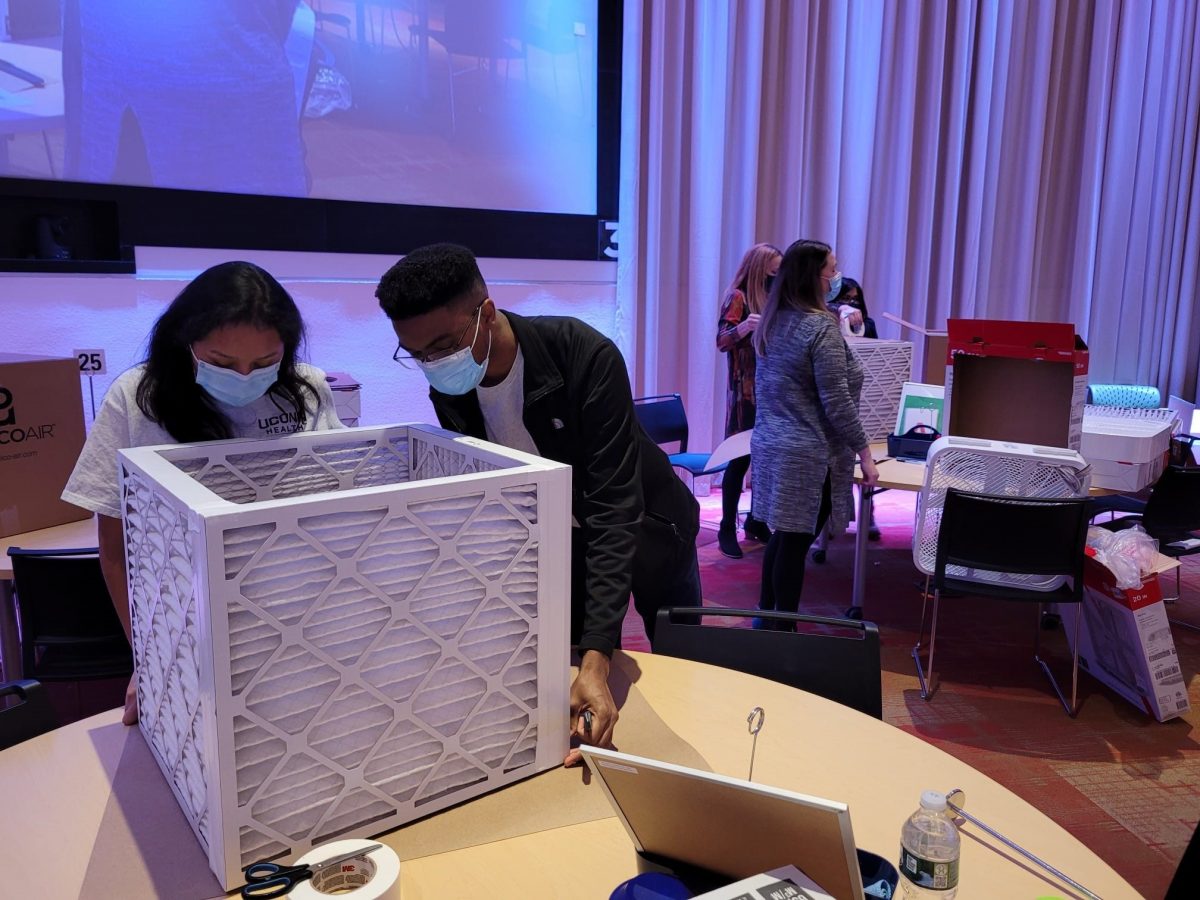 COVID-19 cases may be falling, but the virus is still a very real concern for many parents sending their children back to school. UConn researchers are working to ease those worries by building do-it-yourself air purifiers to improve health in schools and other crowded settings. The Indoor Air Quality Initiative, which has already made an impact in Connecticut, is growing, thanks to a generous donation.
COVID-19 cases may be falling, but the virus is still a very real concern for many parents sending their children back to school. UConn researchers are working to ease those worries by building do-it-yourself air purifiers to improve health in schools and other crowded settings. The Indoor Air Quality Initiative, which has already made an impact in Connecticut, is growing, thanks to a generous donation. When Dr. Richard Corsi floated an idea on Twitter for a highly effective, inexpensive, DIY air purifier to help lower the risk of Covid, his light-bulb moment went viral in the best possible way. Now many of America’s top scientists—and even the White House—are touting the invention, and people all over the planet are thinking inside the box.
When Dr. Richard Corsi floated an idea on Twitter for a highly effective, inexpensive, DIY air purifier to help lower the risk of Covid, his light-bulb moment went viral in the best possible way. Now many of America’s top scientists—and even the White House—are touting the invention, and people all over the planet are thinking inside the box.